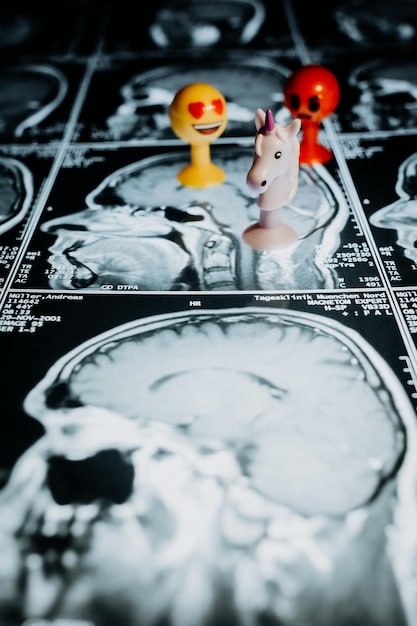The Science of Gratitude: Unlock Mental Well-being in 5 Minutes

The Science of Gratitude: How a 5-Minute Daily Practice Can Improve Your Mental Well-being explores the scientifically proven benefits of gratitude, offering simple, actionable steps to enhance mental well-being through practices like gratitude journaling and mindful appreciation.
Discover the science of gratitude: how a 5-minute daily practice can improve your mental well-being. Unlock the secrets to a happier, healthier mind with simple, science-backed techniques.
Understanding the Science of Gratitude
Gratitude, often seen as a simple act of politeness, has profound psychological and physiological benefits. Understanding the mechanisms behind these benefits can motivate individuals to cultivate gratitude in their daily lives.
The Psychological Benefits of Gratitude
Gratitude is strongly associated with increased happiness and life satisfaction. But how does it work psychologically?
- Gratitude helps to reframe negative experiences by focusing on the positive aspects.
- It reduces social comparisons, which often lead to feelings of inadequacy.
- It fosters a sense of connection and belonging by recognizing the value of relationships.
The Physiological Impact of Gratitude
The benefits of gratitude extend beyond psychological well-being to physical health. Studies have shown that grateful individuals experience:
- Lower blood pressure and improved cardiovascular health.
- Stronger immune systems and fewer physical symptoms.
- Better sleep quality and increased energy levels.

By understanding both the psychological and physiological benefits, we can appreciate the holistic impact of gratitude on overall well-being. Cultivating gratitude is not just about being polite; it’s about investing in our mental and physical health.
Simple Gratitude Practices for Daily Life
Integrating gratitude into your daily routine doesn’t require significant time or effort. These simple practices can be easily incorporated into your lifestyle.
Gratitude Journaling
One of the most popular and effective gratitude practices is journaling. It involves regularly writing down things you are grateful for.
To start:
- Set aside 5-10 minutes each day, perhaps in the morning or before bed.
- Write down 3-5 things you are grateful for, focusing on specific details.
- Reflect on why these things bring you joy or satisfaction.
Gratitude Meditations
Gratitude meditations involve focusing your thoughts on feelings of appreciation and thankfulness.
To practice:
- Find a quiet place where you can sit comfortably.
- Close your eyes and bring to mind things you are grateful for.
- Focus on the positive emotions associated with these thoughts.

These simple gratitude practices can transform your daily life by shifting your focus to the positive aspects of your experiences. Regular practice can lead to a more grateful and joyful outlook.
The 5-Minute Gratitude Routine: A Step-by-Step Guide
Implementing a 5-minute gratitude routine is an easy and effective way to boost your mental well-being. Here’s a step-by-step guide to get you started.
Step 1: Setting the Stage (1 Minute)
Find a quiet and comfortable space where you can relax without interruptions. Take a few deep breaths to center yourself and prepare for the practice.
Step 2: Mental Inventory (2 Minutes)
Think about the things you are grateful for. This could include relationships, opportunities, personal strengths, or simple pleasures. Allow yourself to feel the positive emotions associated with these thoughts.
Step 3: Gratitude Expression (2 Minutes)
Express your gratitude in a tangible way. This could involve writing in a gratitude journal, sending a thank-you note, or simply saying “thank you” to someone you appreciate.
By following this 5-minute gratitude routine consistently, you can cultivate a more positive and appreciative mindset. Small, regular doses of gratitude can lead to significant improvements in your overall well-being.
Overcoming Challenges in Practicing Gratitude
While gratitude practices are generally straightforward, some individuals may encounter challenges. Recognizing and addressing these challenges can help you maintain a consistent gratitude practice.
Some common challenges include:
- Difficulty identifying things to be grateful for, especially during difficult times.
- Forgetting to practice gratitude regularly due to busy schedules.
- Feeling self-conscious or awkward when expressing gratitude to others.
Tips for Staying Consistent
To overcome these challenges, consider these strategies:
- Start small: Begin with just one or two things you are grateful for each day.
- Set reminders: Use alarms or calendar notifications to remind you to practice gratitude.
- Find an accountability partner: Practice gratitude with a friend or family member to stay motivated.
By addressing these challenges and implementing effective strategies, you can establish a sustainable gratitude practice that enhances your mental well-being over the long term.
Gratitude and Its Impact on Relationships
Gratitude not only benefits individual well-being but also strengthens relationships. Expressing gratitude can foster deeper connections and improve communication.
Enhancing Communication and Connection
When you express gratitude to others, you validate their efforts and contributions. This can lead to:
- Increased feelings of appreciation and respect.
- Improved communication and understanding.
- Stronger bonds and a greater sense of connection.
Expressing gratitude in relationships can transform interactions and create a more positive and supportive environment. Gratitude serves as a powerful lubricant for social connections, fostering mutual appreciation and understanding.
Long-Term Benefits of a Gratitude Practice
The benefits of gratitude extend far beyond immediate feelings of happiness. Consistent gratitude practices can lead to long-term improvements in mental and physical health.
Sustained Improvements in Mental Health
Over time, a regular gratitude practice can lead to:
- Reduced symptoms of depression and anxiety.
- Increased resilience and coping skills.
- Greater overall life satisfaction.
Improved Physical Health Outcomes
Long-term gratitude practices are also associated with:
- Lower risk of chronic diseases.
- Better management of existing health conditions.
- Increased longevity.
By consistently cultivating gratitude, you can invest in your long-term well-being. The compounding effects of gratitude practices can lead to profound and lasting improvements in your quality of life.
| Key Point | Brief Description |
|---|---|
| 😊 Psychological Benefits | Increases happiness, reduces social comparisons. |
| 💪 Physiological Impact | Lowers blood pressure, improves sleep quality. |
| ✍️ Gratitude Journaling | Write down 3-5 things you’re grateful for daily. |
| 🤝 Relationship Benefits | Enhances communication and fosters connection. |
Frequently Asked Questions
▼
Gratitude is the feeling of appreciation and thankfulness for the good things in our lives. It’s important because it’s linked to increased happiness, improved relationships, and better overall mental well-being. It shifts focus to positive aspects.
▼
To start a gratitude journal, set aside a few minutes each day to write down things you’re grateful for. Be specific and focus on the details. Reflecting on why these things bring you joy enhances the practice.
▼
If you’re struggling, start small. Think about basic comforts like a warm bed, access to food, or supportive friends. Even small things can trigger feelings of gratitude and improve your outlook.
▼
Expressing gratitude verbally can have a stronger impact on relationships because it validates the other person’s efforts. Both mental and verbal expressions are beneficial, but verbalizing gratitude often deepens connections.
▼
Consistency is key. Aim to practice gratitude daily, even if it’s just for a few minutes. Regular, small doses of gratitude can lead to sustained improvements in your mental and physical health over time.
Conclusion
Incorporating the science of gratitude: how a 5-minute daily practice can improve your mental well-being into your daily life can be a powerful tool for enhancing your overall well-being. From simple journaling to mindful appreciation, these practices offer a pathway to greater happiness, stronger relationships, and improved mental health. Start today and experience the transformative power of gratitude.





